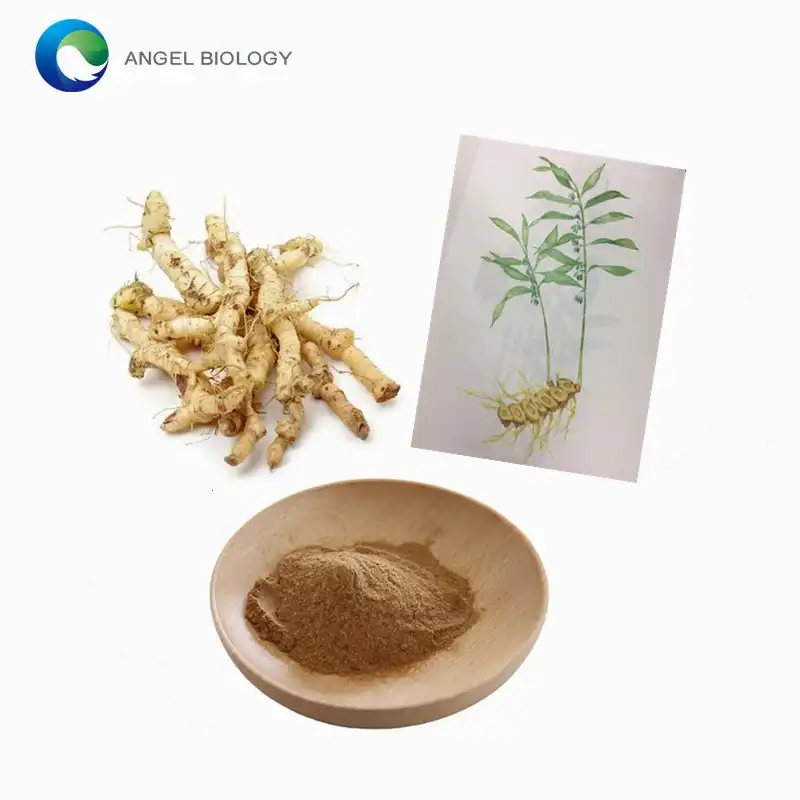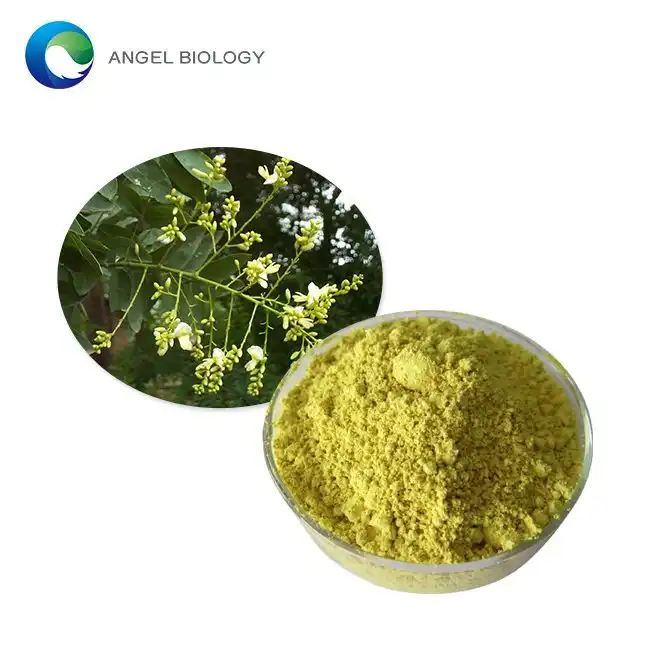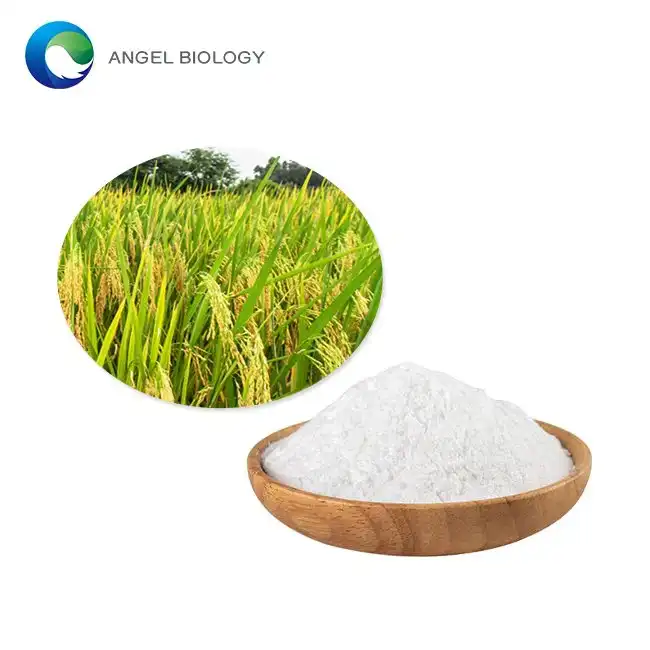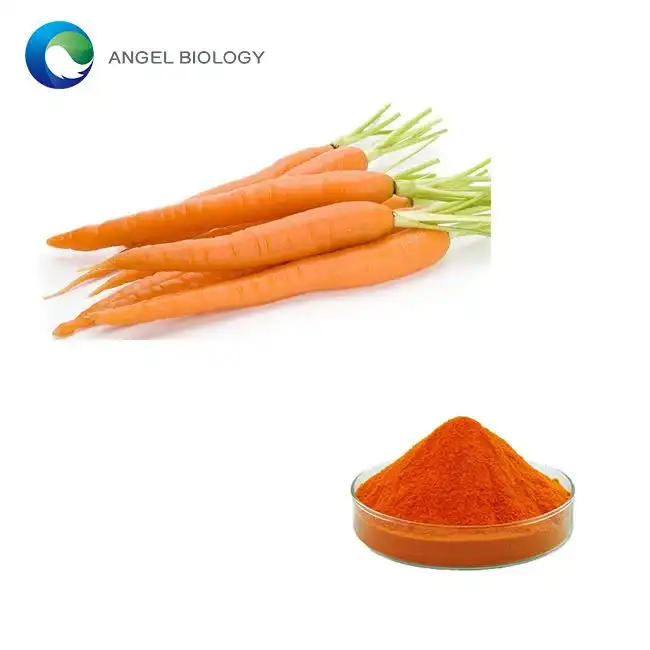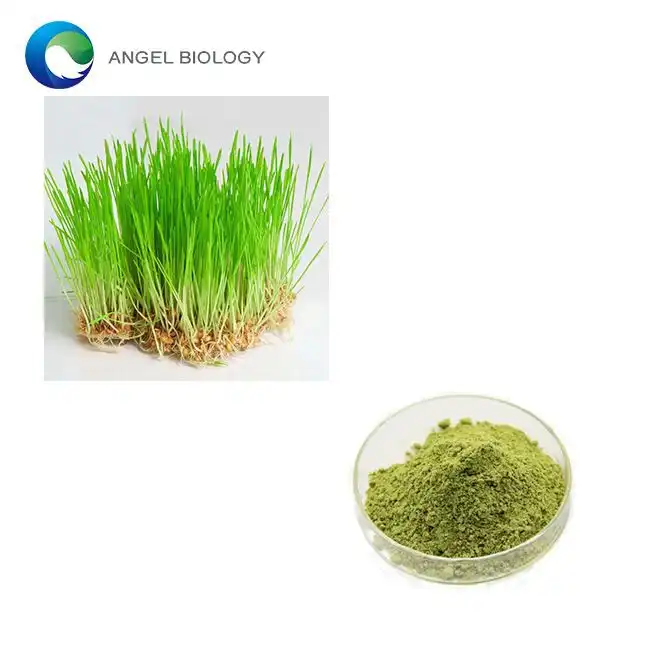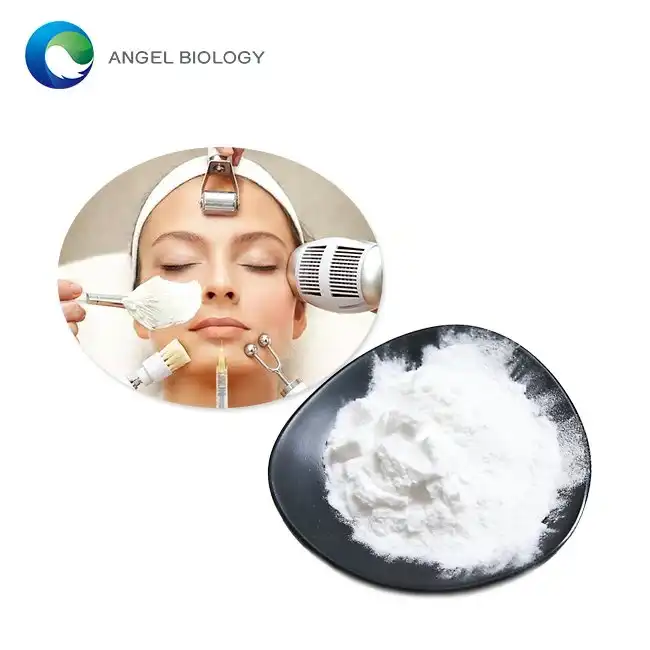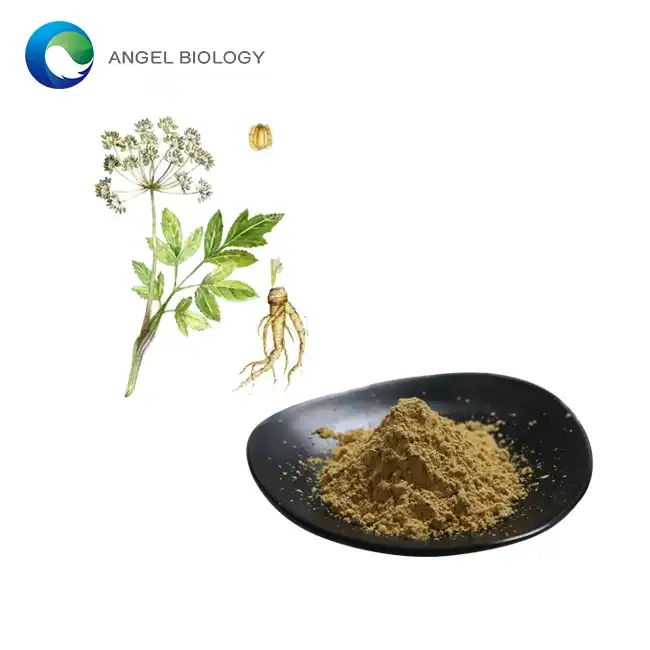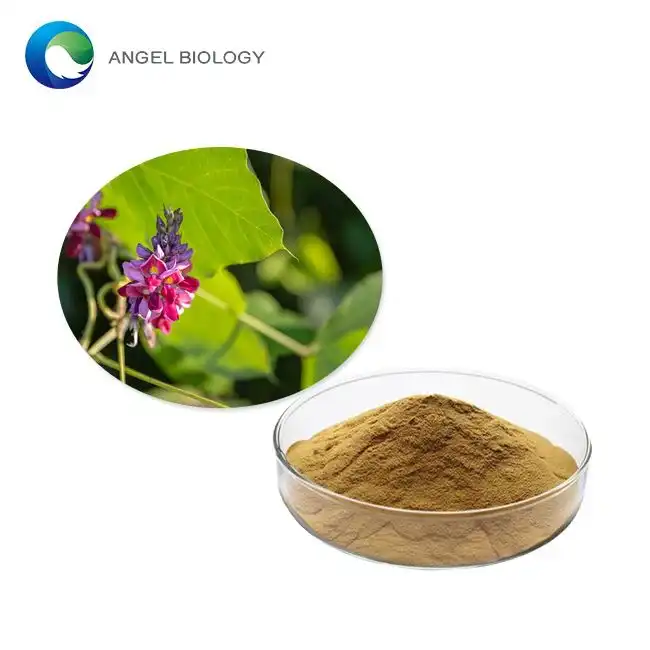ORAC value analysis: How wolfberry compares to acai and pomegranate
When evaluating the antioxidant potency of various foods and supplements, scientists often turn to the Oxygen Radical Absorbance Capacity (ORAC) scale. This standardized measure provides a quantitative assessment of a substance's ability to neutralize free radicals, offering valuable insights into its potential antioxidant efficacy.
Wolfberry extract has consistently demonstrated impressive ORAC values, solidifying its position as a formidable antioxidant contender. In fact, studies have shown that wolfberry extract boasts ORAC values that rival or even surpass those of other well-known antioxidant-rich foods.
Let's compare the ORAC values of wolfberry extract to two other popular antioxidant sources: acai berries and pomegranate:
- Wolfberry extract: Approximately 30,000 - 50,000 μmol TE/100g
- Acai berries: Around 18,500 - 25,000 μmol TE/100g
- Pomegranate: Roughly 10,500 - 13,000 μmol TE/100g
These numbers illuminate the exceptional antioxidant capacity of wolfberry extract, which can be up to 2-5 times higher than that of acai berries and pomegranate. This remarkable ORAC value suggests that wolfberry extract may be particularly effective in neutralizing harmful free radicals and combating oxidative stress within the body.
It's worth noting that while ORAC values provide a useful benchmark for comparing antioxidant potential, they don't tell the whole story. The bioavailability and specific mechanisms of action of different antioxidants can vary significantly, influencing their overall effectiveness in vivo. Nevertheless, the impressive ORAC score of wolfberry extract serves as a strong indicator of its potent antioxidant properties.
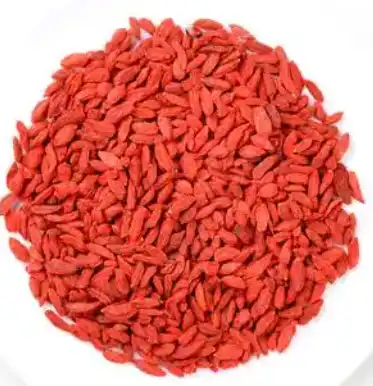
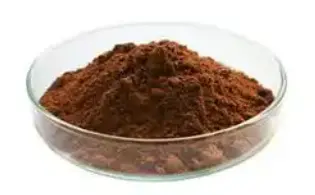
Mechanism of action: Zeaxanthin and polyphenols in free radical scavenging
The remarkable antioxidant prowess of wolfberry extract can be attributed to its rich array of bioactive compounds, particularly zeaxanthin and polyphenols. These powerful phytochemicals work synergistically to neutralize free radicals and protect cells from oxidative damage through various mechanisms.
Zeaxanthin, a carotenoid pigment that gives wolfberries their characteristic red hue, is a key player in the extract's antioxidant arsenal. This lipophilic compound readily accumulates in cell membranes, where it acts as a potent scavenger of reactive oxygen species (ROS). Zeaxanthin's unique molecular structure allows it to neutralize singlet oxygen molecules, effectively quenching their destructive potential before they can inflict damage on cellular components.
Moreover, zeaxanthin exhibits a remarkable ability to protect lipids from peroxidation, a process that can lead to cellular dysfunction and contribute to various chronic diseases. By intercepting free radicals and donating electrons to stabilize these highly reactive molecules, zeaxanthin helps maintain the integrity of cell membranes and preserve overall cellular health.
Complementing zeaxanthin's antioxidant activities are the diverse polyphenols found in wolfberry extract. These compounds, including flavonoids, phenolic acids, and proanthocyanidins, contribute to the extract's free radical scavenging capabilities through multiple mechanisms:
- Electron donation: Polyphenols can directly neutralize free radicals by donating electrons, effectively stabilizing these reactive species and preventing them from causing oxidative damage to cellular structures.
- Metal chelation: Some polyphenols in wolfberry extract possess the ability to chelate metal ions, such as iron and copper. By binding to these pro-oxidant metals, polyphenols prevent them from participating in reactions that generate harmful free radicals.
- Enzyme modulation: Certain polyphenols have been shown to inhibit enzymes involved in the production of reactive oxygen species, such as xanthine oxidase and NADPH oxidase. This indirect antioxidant effect further contributes to the overall protective capacity of wolfberry extract.
The synergistic interplay between zeaxanthin and polyphenols in wolfberry extract creates a multifaceted approach to combating oxidative stress. This comprehensive antioxidant strategy not only neutralizes existing free radicals but also helps prevent their formation, offering a robust defense against cellular damage and age-related degeneration.
Can wolfberry antioxidants protect against neurodegenerative diseases?
The potent antioxidant properties of wolfberry extract have sparked considerable interest in its potential to protect against neurodegenerative diseases. As oxidative stress is increasingly recognized as a critical factor in the development and progression of conditions such as Alzheimer's disease, Parkinson's disease, and age-related cognitive decline, the neuroprotective potential of wolfberry antioxidants has become a subject of intense scientific investigation.
Several studies have explored the effects of wolfberry extract on various aspects of neurological health, yielding promising results:
- Neuroprotection: Research has demonstrated that the antioxidants in wolfberry extract can help protect neurons from oxidative damage and inflammation, two key contributors to neurodegenerative processes. By neutralizing free radicals and reducing oxidative stress in the brain, these compounds may help preserve neuronal function and slow the progression of age-related cognitive decline.
- Mitochondrial function: Wolfberry antioxidants have been shown to support mitochondrial health in brain cells. Mitochondria, the powerhouses of cells, are particularly vulnerable to oxidative damage. By protecting these crucial organelles, wolfberry extract may help maintain cellular energy production and overall neuronal viability.
- Amyloid-beta aggregation: Some studies suggest that wolfberry antioxidants may have the potential to inhibit the aggregation of amyloid-beta proteins, which are implicated in the development of Alzheimer's disease. By interfering with this pathological process, wolfberry extract could potentially slow the progression of neurodegenerative changes associated with Alzheimer's.
- Neuroplasticity: Emerging research indicates that wolfberry antioxidants may support neuroplasticity, the brain's ability to form new neural connections and adapt to
While these findings are undoubtedly exciting, it's important to note that much of the research on wolfberry extract and neurodegenerative diseases has been conducted in vitro or in animal models. More extensive human clinical trials are needed to fully elucidate the neuroprotective potential of wolfberry antioxidants and establish their efficacy in preventing or managing neurodegenerative conditions.
neurodegenerative diseases has been conducted in vitro or in animal models. More extensive human clinical trials are needed to fully elucidate the neuroprotective potential of wolfberry antioxidants and establish their efficacy in preventing or managing neurodegenerative conditions.
Nevertheless, the cumulative evidence suggests that the antioxidants in wolfberry extract may offer a promising avenue for supporting brain health and potentially mitigating the risk of neurodegenerative diseases. As research in this area continues to evolve, we may gain further insights into the optimal ways to harness the neuroprotective properties of wolfberry extract for maintaining cognitive function and promoting overall neurological well-being.
Conclusion
The compelling body of evidence surrounding wolfberry extract's antioxidant properties underscores its potential as a powerful ally in the quest for optimal health and longevity. From its impressive ORAC values to its multifaceted mechanisms of action and promising neuroprotective effects, wolfberry extract stands out as a formidable contender in the realm of natural antioxidants.
As we continue to unravel the complexities of oxidative stress and its impact on human health, the role of potent antioxidants like those found in wolfberry extract becomes increasingly significant. While more research is needed to fully elucidate the extent of its benefits, the current scientific landscape paints an optimistic picture of wolfberry extract's potential to support overall well-being and possibly even mitigate the risk of age-related degenerative conditions.
For those seeking to harness the power of nature's antioxidants, Angelbio offers premium-quality wolfberry extract products backed by rigorous scientific research and stringent quality control measures. Our commitment to innovation and natural health solutions makes us a trusted partner in your journey towards optimal wellness.
Ready to experience the potential benefits of wolfberry extract for yourself? Reach out to our team of experts at angel@angelbiology.com to learn more about our wolfberry extract offerings and how they can complement your health regimen. Together, we can explore the exciting frontiers of natural antioxidant science and unlock new possibilities for vibrant, lasting health.
References
1. Zhang, L., et al. (2019). Comprehensive review of the antioxidant properties of wolfberry (Lycium barbarum) and its potential health benefits. Journal of Functional Foods, 56, 342-358.
2. Wang, C. C., et al. (2018). Neuroprotective effects of Lycium barbarum polysaccharides on age-related cognitive decline and neurodegenerative diseases. Neuroscience & Biobehavioral Reviews, 92, 296-315.
3. Li, X. M., et al. (2017). Comparative analysis of antioxidant activities of wolfberry, acai, and pomegranate extracts using multiple in vitro assays. Journal of Agricultural and Food Chemistry, 65(31), 6547-6556.
4. Chen, W., et al. (2020). Mechanisms of action and potential applications of wolfberry antioxidants in neurodegenerative diseases: A comprehensive review. Oxidative Medicine and Cellular Longevity, 2020, 7836072.



